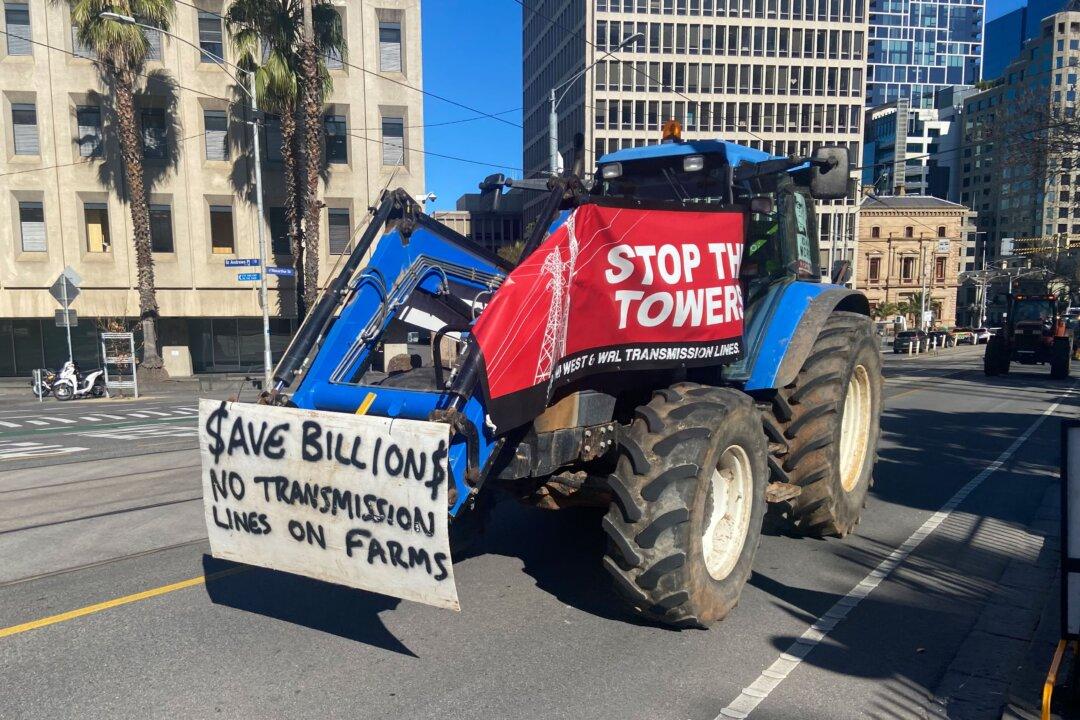Hundreds of regional Victorian farmers and their vehicles have descended into Melbourne to protest two controversial transmission projects amid the state’s pursuit of net zero emissions.
On Aug. 15, a group of farmers whose lands are affected by the VNI West and Western Renewables Link projects held a rally in front of the Victorian Parliament building to voice their opposition.





